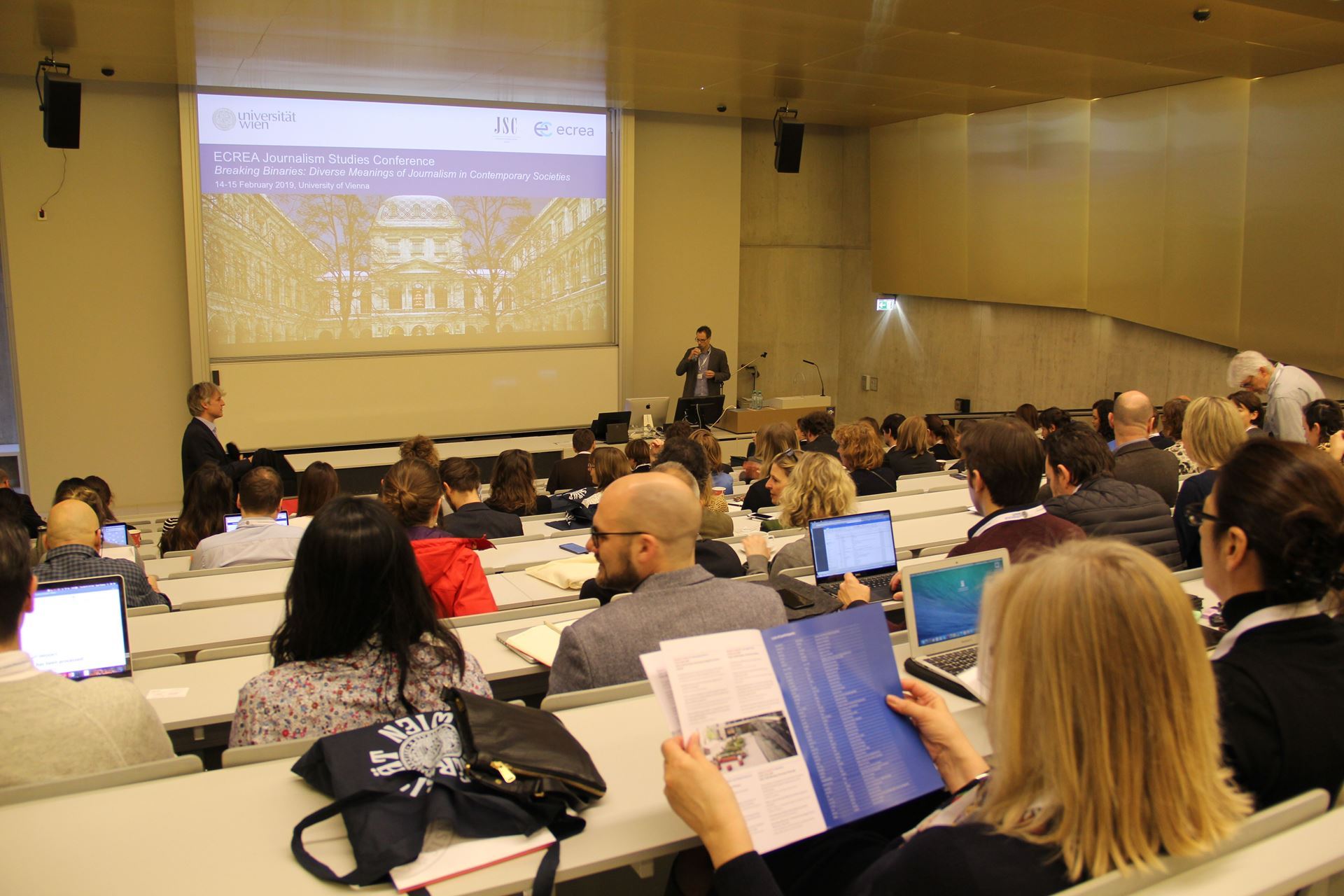Breaking Binaries: Exploring the Diverse Meanings of Journalism in Contemporary Societies
On 14th and 15th of February 2019 the Journalism Studies Section conference was held in Vienna, convened by Folker Hanusch and his team at the Journalism Studies Center, University of Vienna. The conference was a great success with 109 registered participants. The acceptance rate for presentations was 61 percent.

With a theme of “Breaking Binaries: Exploring the Diverse Meanings of Journalism in Contemporary Societies”, the organizers put together an interesting programme of full papers as well as high density presentations discussing how journalism studies can help to address the increasingly complex journalistic field, and to propose theoretical and empirical ways that go beyond previous, simplistic binaries that have at times defined the field. The seventeen panels touched upon various recent trends and changes in journalism, including audience interaction and engagement, innovations in and broadening perspectives on journalism, among others. The conference also included a keynote address by Karin Wahl-Jorgensen titled “Breaking boundaries: Journalism studies, emerging media ecologies and the new emotional politics”. This talk considered how emerging media ecologies, coupled with shifts in public discourse, are challenging received assumptions about journalism, and therefore also raising fundamental questions for journalism scholars. The era of angry populism, the talk suggested, has been facilitated by a confluence of circumstances linked to transformations in journalism, alongside a series of broader social, political and economic trends. These require a careful and nuanced analysis that journalism studies is well placed to offer.
A day prior to the conference, Corinna Lauerer organized a YECREA PhD workshop, which featured PhD students presenting their work and receiving in-depth feedback from established scholars in a constructive atmosphere. The six PhD candidates that had been successful in the competitive double-blind review process addressed very timely topics ranging from personalized news, audience metrics or innovation in media labs to fake news. Special thanks go to Ester Appelgren, Leyla Dogruel, Sophie Lecheler, Marcel Broersma, Arjen van Dalen, Richard Fletcher and Folker Hanusch for preparing comprehensive responses. Following the conference, Corinna stepped down as the section’s YECREA representative due to her recent election as YECREA Vice-Chair. Sandra Banjac and Phoebe Maares (both University of Vienna) were appointed new section YECREA representatives.
Corinna Lauerer, LMU Munich, Germany